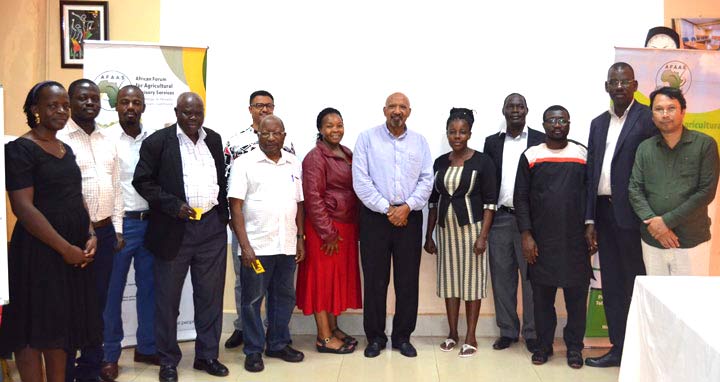
AFAAS developed its first Strategy Plan for the period 2011 – 2017 whose implementation was successfully concluded. The second strategy for the ten year period from 2018-2027 was guided by; examining the AFAAS’ strategic orientation, achievements, challenges and lessons learnt; the development challenges and; stakeholders’ perspectives.
The 2018 – 2027 development context for AFAAS was informed by the challenges facing agricultural development and the events that are driving the development agendas. These include:
- The need to attain agricultural development targets, as per various commitments by the African Heads of State under the CAADP framework;
- Making agriculture an option for economic diversification;
- The relentless increase in Africa’s population estimated to reach two billion by 2050, many of them youth;
- The need to transform agriculture, though productivity increase and commercialization;
- The weak agricultural advisory and extension services; and
- Combatting effects of climate change on agricultural production.
STRATEGIC ORIENTATION OF THE 2018-2027 STRATEGY
The principles that guided the design of the new strategy have been stated as:
- Information on innovations, lessons learnt and best practices shared and treated as public good;
- Continental focus to benefit all of Africa;
- Quality assurance through improved quality of AAS providers, functional and professionalism;
- Accountability through attainment of impact and accountability to clients and other end-users;
- Partnerships built to more efficiently provide AAES in the region;
- Efficiency and effectiveness for sustainability of AES programmes and better resource utilization;
- Innovativeness through adoption of innovative tools and methods;
- AEAS with a Market orientation/ commercialization and Pluralism in AEAS provision; and
The Pillars that will guide AFAAS’ implementation are Grounded in the following:
Pillar 1: Strengthening and expanding network and knowledge management capacities;
Pillar 2. Developing capacities for scaling out technologies; and
Pillar 3: Facilitating advancement of AEAS.

IMPLEMENTATION ARRANGEMENTS
The environment in which AFAAS will operate in the period of this strategy will be very dynamic. Depending on funds availability, the strategy is being operationalised through rolling out of annual work plans that will be updated throughout the planned year. The planning process will prioritise objectives and activities therein that can be rolled into or out of the plan.
